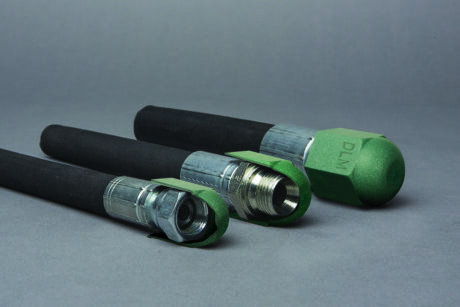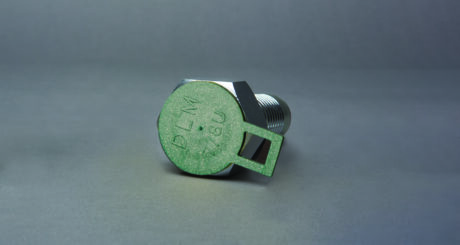The circular economy is often seen as a sector where there is much theory and little substance, and we think that its implementation is tiring and scarcely advantageous. In the case of DLM the scenario is completely the opposite. DLM was established in 1987 at Opera, in the outskirts of Milan. The entrepreneur Antonio Montanari who, at that time, manufactured hydraulic curves, takes over the activity of an old moulder of plastic polymer items since, having no heirs, he transmits him his knowledge. In virtue of that technique integration, he starts making the first moulds for plastic polymer caps, used to protect threads on his hydraulic curves.
Identikit of an Italian SME projected on global markets
Today DLM makes only protection caps, and if 55% of its production goes directly abroad, also a vast part of the items sold in Italy is then anyway exported as applied component.
This figure mirrors the Italian manufacturing one in the sector: as declared by Federtec (the association that represents the Italian industry of fluid power components) «in its 2021 final balance, over 60% of the domestic production of fluid power components goes beyond the national borders».

DLM avails itself of a logistic centre taking up 3,000 square metres, operating 24 hours a day, 365 days a year, which provides for processing orders in 48 hours. Browsing the site www.dlmtappi.com it is possible to choose in an immense catalogue of references including caps, protections for flanges, caps for paints and so on, each in a noteworthy number of dimensional variants (it would be interesting to mention the number of products and variants). Moreover, if a customized product is needed, the technical office, in collaboration with the toolshop, implements tailored designs and solutions.
The range of GREEN LINE caps
DLM judges the reduction of the environmental impact as a commitment towards, families, sons and future generations. According to this vision, they have considered without prejudices three possible alternatives: the use of biodegradable materials, bioplastics and recycled plastic materials. 18 months of tests that have led DLM technologists to decree that neither biodegradable nor bioplastics fully complied with the expectations, from the point of view of the environmental protection. Biodegradable materials provide in fact for the disposal in composting plants or the landfilling, so interrupting the circularity’s virtuosity; bioplastics are not available in big quantities.
The green turning point of DLM
The way chosen by DLM is the use of second-life plastic materials, in their turn recyclable. The range of GREEN LINE caps is already available. GREEN LINE caps are certified by IPPR body (Institute for the Promotion of Recycled Plastics) that has conferred the mark “Plastic second life” to the product. The GREEN LINE is intended for replacing each single DLM product in the short term. The green turning point of DLM is not only concretized in the final product, but also in the machining process: DLM has in fact implemented 25 new hybrid injection presses that have given DLM a 30% saving in the energy consumption per kilo of material processed/produced.

Moreover, they have replaced refrigerators and compressors with state-of-the-art systems and they have proceeded to the installation of solar panels for 300 KWp that, today, contribute by 35% of energy requirements. The electric energy consumption has decreased from 3.17 kWh/kg to 1.99 kWh/kg. The implementation of hot-runner injection moulds, which have the advantage of not generating sprues (processing waste) and dosers able to impart the heat directly on the plant are essential to improve manufacturing processes. To date, moulds provide a yearly saving of waste amounting to 12.170 kg, for a reduction of CO2 emissions corresponding to 18,680 kg equivalent, and mixers decrease material preparation wastes by 4500 kg, with CO2 reduction amounting to 6,920 kg equivalent”.



